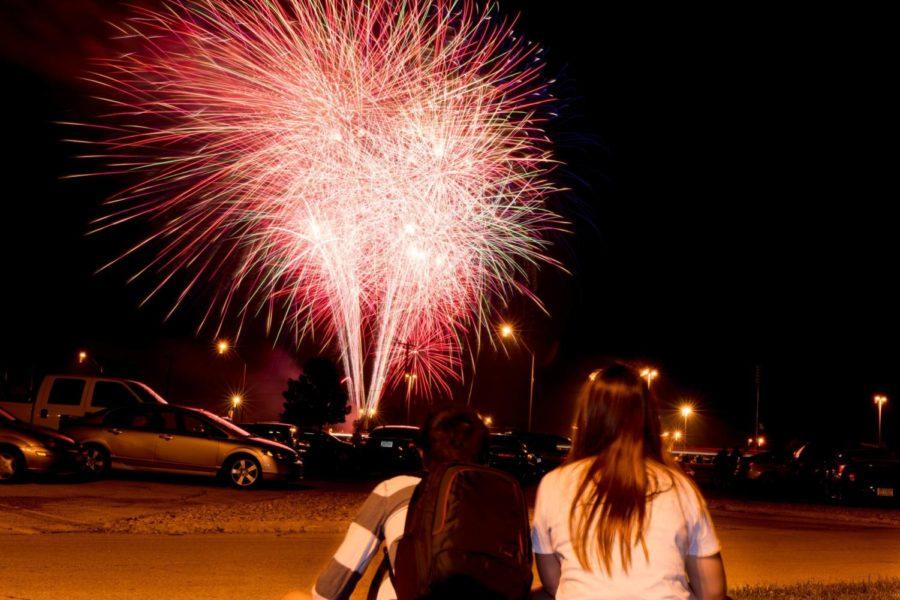New bill to possibly bring fireworks back to Iowa
Most university and city offices will be closed in observance of Independence Day weekend on Friday, July 3.
February 26, 2014
The Iowa Senate will soon consider a bill that would legalize the sale of consumer fireworks to individuals 18 years or older in the state of Iowa. Fireworks have been banned in the state of Iowa since 1930, but some members of the state Senate think it is time to revisit the subject.
The bill was introduced by Sen. Mark Chelgren (R-Ottumwa) earlier this month. Fireworks such as skyrockets, Roman candles and other similar projectile-type fireworks would become available to private citizens. Chelgren sees benefits for small towns resulting from the legalization according to the Des Moines Register.
The bill passed committee review with a 10-5 vote and although democrats and republicans both voted to propose this bill for Senate review, it now seems to be split across party lines. Sen. Herman Quirmbach (D-Ames) is among those in opposition of the bill.
“I am fairly skeptical of untrained private citizens having access to these higher-grade fireworks. I am perfectly happy to leave the laws as they are now,” Quirmbach said.
Quirmbach also expressed doubts that the age restrictions for fireworks sales would be sufficient to keep them out of the hands of children.
“The law says it is still illegal to sell to those under the age of 18, but these things always find their way out of the adult’s hands. The risk of children playing with these in their backyards and blinding themselves or losing fingers is too high of a price to pay,” Quirmbach said.
The Ames Police Department is equally as unenthusiastic about the potential legalization of fireworks in Iowa. Commander Geoff Huff of the Ames Police expressed the department’s position on the current fireworks laws and the potential laws. Huff said that current laws are difficult to enforce, but preferable to legalization.
“The law states that possession of fireworks is legal, but the use of those fireworks is not. Most times that we respond to fireworks complaints, they have already been used. But even if we get there and see the suspects in possession of fireworks, there is no action we can take because that alone is not illegal,” Huff said.
Huff also expressed concerns about the reasoning for passing these new laws and expressed only one positive about the bill.
“I hope we don’t do something like this simply for the revenue. The only positive that I can see in this bill is the ability for individual city councils to decide what is and is not to be allowed in their community,” Huff said.
Critics of the bill assert that the money gained in taxes would only be expended in increased injury reports and property damage situations.
“Even if new equipment is obtained, that money will only be spent in turn to deal with the increased workload,” Huff said.
The type of fireworks that would become legal are responsible for nearly 20 percent of national fireworks-related injuries according to the National Council on Firework Safety. Huff believes that even a slight increase in firework-related injuries is not worth the benefit, saying that the risks far outweigh the rewards.
“This will only cause more problems. We obviously are not going to see injuries go down as a result of more fireworks, so I do not see why it should be passed,” Huff said.
Multiple safety councils have already expressed their opposition to the bill, including the Iowa Medical Society and the Iowa Fire Marshals due to concerns about national statistics regarding hazards linked to firework use.







